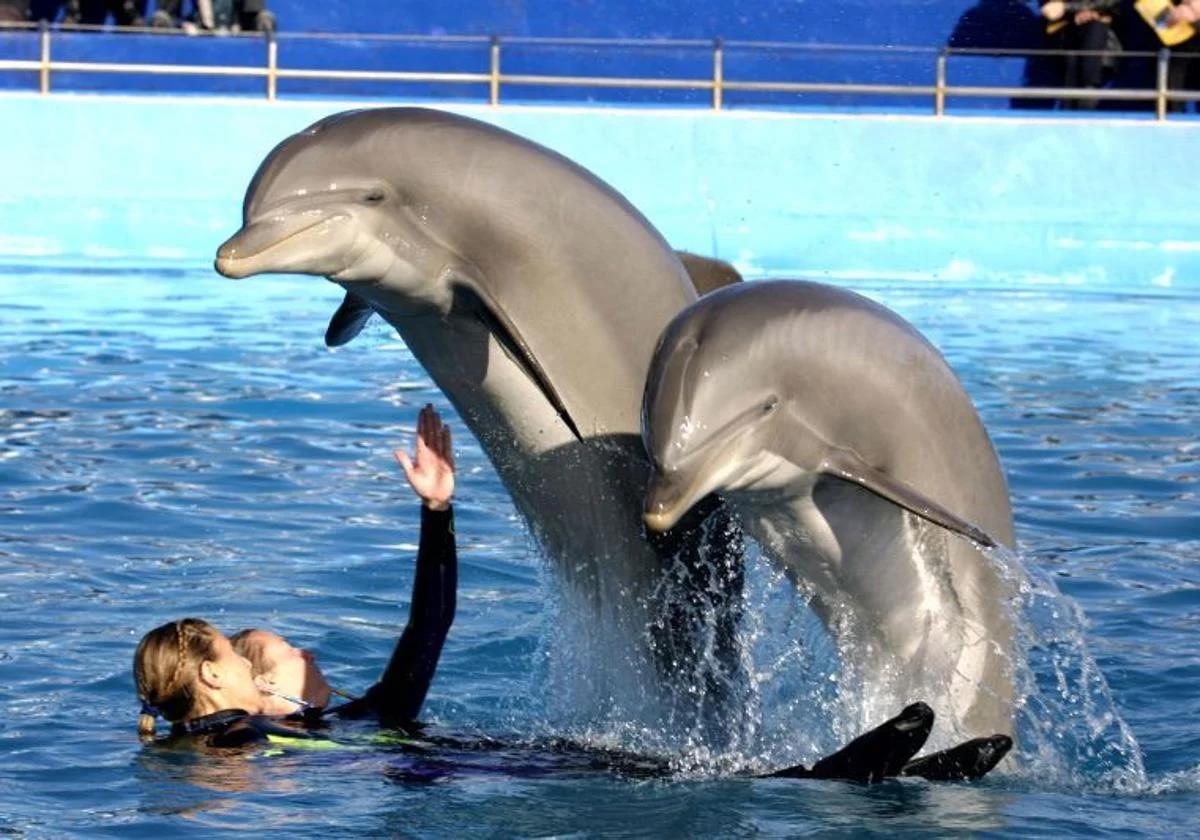Madrid zoo waves goodbye to its dolphins
Spain's largest zoological park has sent its eight aquatic mammals to a facility in China, a decision that animal rights groups consider a victory
The Zoo de Madrid has been left without its dolphins. Spain's largest zoological park has moved its aquatic mammals to a zoo on the island of Hainan, China, following a recommendation from the European Association of Zoos and Aquariums (EAZA). The decision was taken to "ensure the highest technical standards" and "keep the group together". "The animals have arrived in perfect condition, accompanied by their keepers," the Madrid zoo said in a statement, explaining that the Chinese park "has modern facilities and the most advanced technical means", as well as already housing dolphins from other European institutions.
The presence of the dolphins at Madrid zoo had become controversial in recent years. In 2019, a report by Proyecto Gran Simio, Sea Shepherd Conservation Society and other animal rights groups revealed that two of the animals, Lala and Ángel, appeared sick and suffered from skin lesions, and seven of the animals had eye problems. The investigation by the Guardia Civil's Seprona nature branch and the Madrid regional government did not find mistreatment and the park was not sanctioned, so the company that manages the zoo sued Proyecto Gran Simio for tainting its name, but both the court of first instance and the provincial court of Madrid and finally Spain's Supreme Court rejected the claims of the zoo.
Now, animal rights organisations consider the dolphins' departure a victory, but they are asking the zoological park to go further. The executive director of the Great Ape Project demanded on Wednesday that the Madrid zoo close the aquatic enclosure definitively and reminded that dolphins are "intelligent beings", before defining them as the "great apes of the ocean".
The managers of the facility propose a different solution for the dolphinarium: they believe that it could become a temporary accommodation centre when the needs of other parks or institutions require it and "while working to resume educational activities in this space". In fact, in the future, the zoo "will evaluate its adaptation for the conservation of other marine species".
Proyecto Gran Simio claims to reflect "the general feeling of the public, who are against these 'circus shows' that denigrate dolphins and that keep them in small pools and force them to behave in ways that are inappropriate for their own species", and proposes that the dolphinarium be used for "education and knowledge of cetaceans". The Madrid zoo argues that by moving to China, the animals "will continue to be part of the European dolphin population to ensure the best possible genetic diversity and a self-sustaining population".

